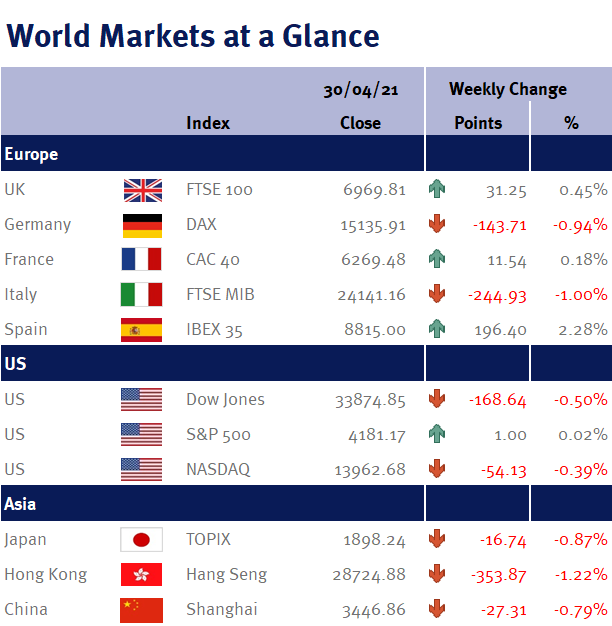It has been an interesting week: recent robust economic data allowed Jay Powell, the Fed Chair (the US central bank), to talk optimistically about the economic outlook, while at the same time effectively reminding the market of the famous mantra ‘don’t fight the Fed’, as he repeated it was far too early to consider tighter monetary policy.
And it is easy to see why: the core PCE reading, the Fed’s preferred inflation measure, again came in below its 2% target at 1.8%. Although we fully expect this inflation measure to rise above their 2% target in the coming months due to last year’s distorted prices, these effects will quickly fade as they pass through, rather than resulting in persistently high inflation.
Additionally, while it was announced yesterday (Thursday 29 April 2021) that the US economy expanded by an impressive 6.4% during the first quarter, this dramatically contrasts with today’s (Friday 30 April 2021) data release which showed that the Eurozone’s economy shrank by 0.6% over the same period.
The US economic recovery has been helped by a number of fiscal stimulus payments to US households over the past year, which has boosted both the savings rate and consumer spending. As an aside, Visa (the card payment company) this week said that spending on debit cards had grown dramatically relative to credit card spending – and we find this particularly interesting as it suggest to us that US consumers are being cautious – which we see as positive as it is more likely to result in a long-lasting consumer recovery rather than a massive splurge which quickly fades.


